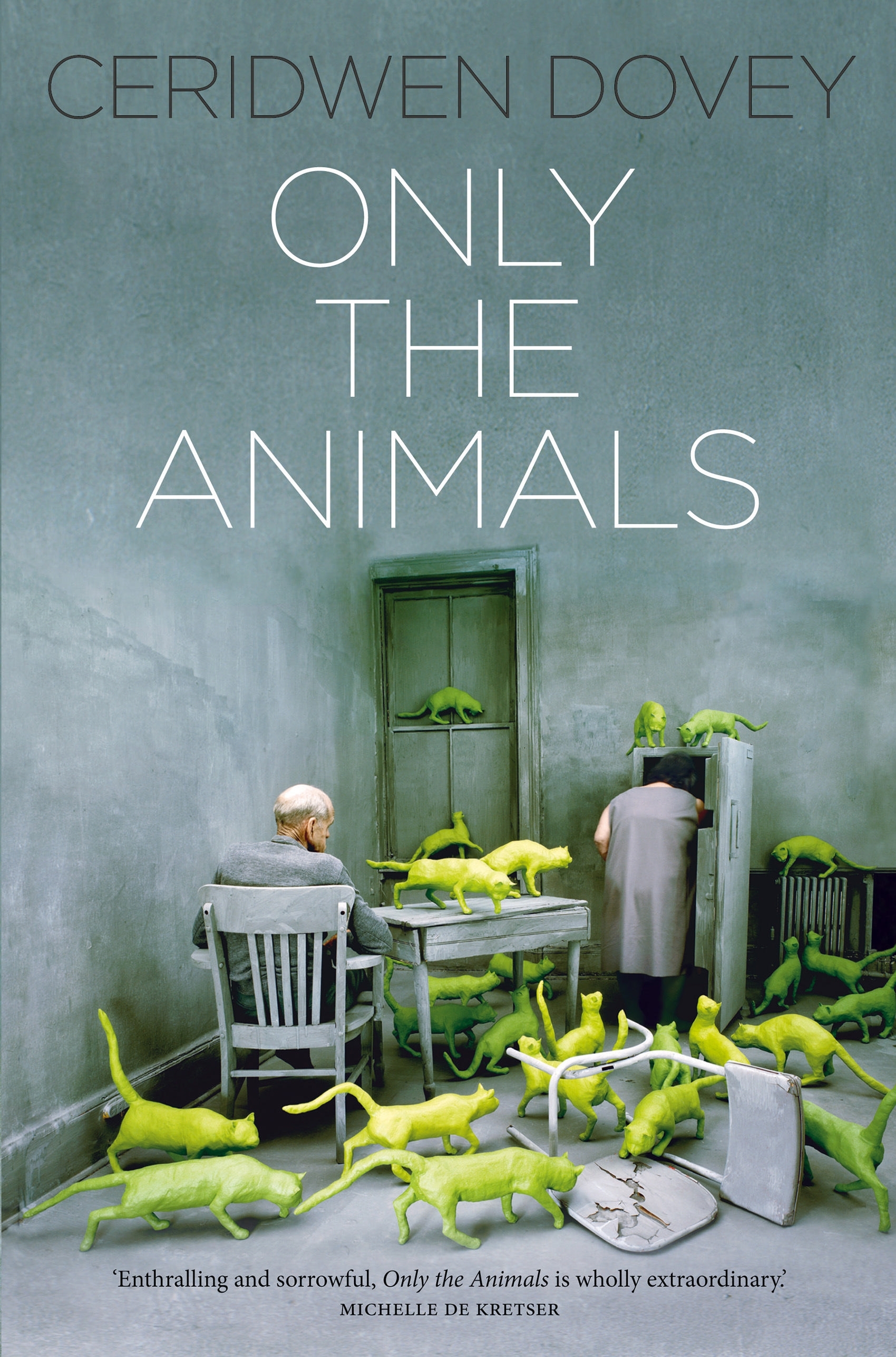 Firstly, Australian writer
Ceridwen Dovey has a fabulous name. Secondly, she came up with a wonderful
concept for a short story collection: her 2014 release of ‘Only The Animals’
has 10 pieces narrated from the perspective of animals who have lived and died
during historically important events. The narrators include a camel spending a night
by campfire with Henry Lawson, French writer Collette’s cat prowling the
trenches in World War One, a bear trapped in a pit in Sarajevo Zoo during the
war, a dolphin trained by the US Navy to detect and place mines during the Gulf
and Iraq wars. Narrating from an animal’s point of view draws on a long
tradition but the death of the animals due to their engagement in historical
events - such as the wars, or being a ‘guinea pig’ on a space flight as does Tolstoy’s
tortoise (‘Through the porthole, on the way to the moon, I saw the earth. It was
just as the dogs had described it, a glassy illuminated marble’) or the runaway
dog of Himmler, banished and left to fend for himself after showing a stranger
more affection than his master – gives this a fresh twist on the concept.
Firstly, Australian writer
Ceridwen Dovey has a fabulous name. Secondly, she came up with a wonderful
concept for a short story collection: her 2014 release of ‘Only The Animals’
has 10 pieces narrated from the perspective of animals who have lived and died
during historically important events. The narrators include a camel spending a night
by campfire with Henry Lawson, French writer Collette’s cat prowling the
trenches in World War One, a bear trapped in a pit in Sarajevo Zoo during the
war, a dolphin trained by the US Navy to detect and place mines during the Gulf
and Iraq wars. Narrating from an animal’s point of view draws on a long
tradition but the death of the animals due to their engagement in historical
events - such as the wars, or being a ‘guinea pig’ on a space flight as does Tolstoy’s
tortoise (‘Through the porthole, on the way to the moon, I saw the earth. It was
just as the dogs had described it, a glassy illuminated marble’) or the runaway
dog of Himmler, banished and left to fend for himself after showing a stranger
more affection than his master – gives this a fresh twist on the concept.
The collection touches upon a great
deal of big ideas, and the literary references are many: the dolphin narrates a
letter to Sylvia Plath ‘By far my favourite parts of your journals and poems
are the insights you share into the quicksand, joyous minutes and hours and
days and weeks and years of mothering’ and a wonderful mussel caught at Pearl Harbour
(surely one of the few mussel narrators in literature?) takes on the beatnik
style of Jack Kerouac ‘Blue mussel larvae, the real drifters, latched onto our
hull at some point in our journey. One of them grew into a real beautiful girl
with golden threads who Muss had a diggy thing for but she was more interested
in me’. Dovey shows thorough research of places, time, people and animal
characteristics. Her style is formal, the language elegant, and there is much
story telling within the pieces, such as the fables told by the animals of
their ancestors. Some images are truly lovely, and poignant: the elephants noting ‘We held a formal
farewell ceremony before they left, making a ring with our bodies close
together, breathing in the smell of our kin’; ‘The black bear did not speak again. On an icy
day at the end of October, he died with his paws wrapped around the brown bear’s
ribcage, holding it close against his body’; and ‘As the sun begins to shade
the sky a pale lemon, the soldier will return, shuffling on his stomach with
the blinking tomcat tucked under one arm, both of them so covered in mud they
could be two bits of the same mythical beast’.
However, as a whole collection I
could put the text down and not feel the need to return quickly: I didn’t connect
with the stories in their entirety but rather individual phrases and ideas.
Reflecting, I wondered whether the collection was too clever for me, too full
of lofty references. I don’t think that was the case. Then I wondered
if it was the animal narrators - and I realised that I was not a great fan of
animal narrators as a child. My brother loved ‘Wind In The Willows’ and ‘Fantastic
Mr Fox’, and others of that ilk – but despite the fact that I was the more avid
reader, I preferred the childhood stories with people at the centre of the
action, and usually, pure realism. So perhaps while I fully understand the
greater meaning of anthropomorphism, it may not be a style in which I can engage. It’s not you Dovey, Dahl, Grahame, Orwell – it’s me.
*This review is part of the Australian Womens Writers Challenge 2014

No comments:
Post a Comment